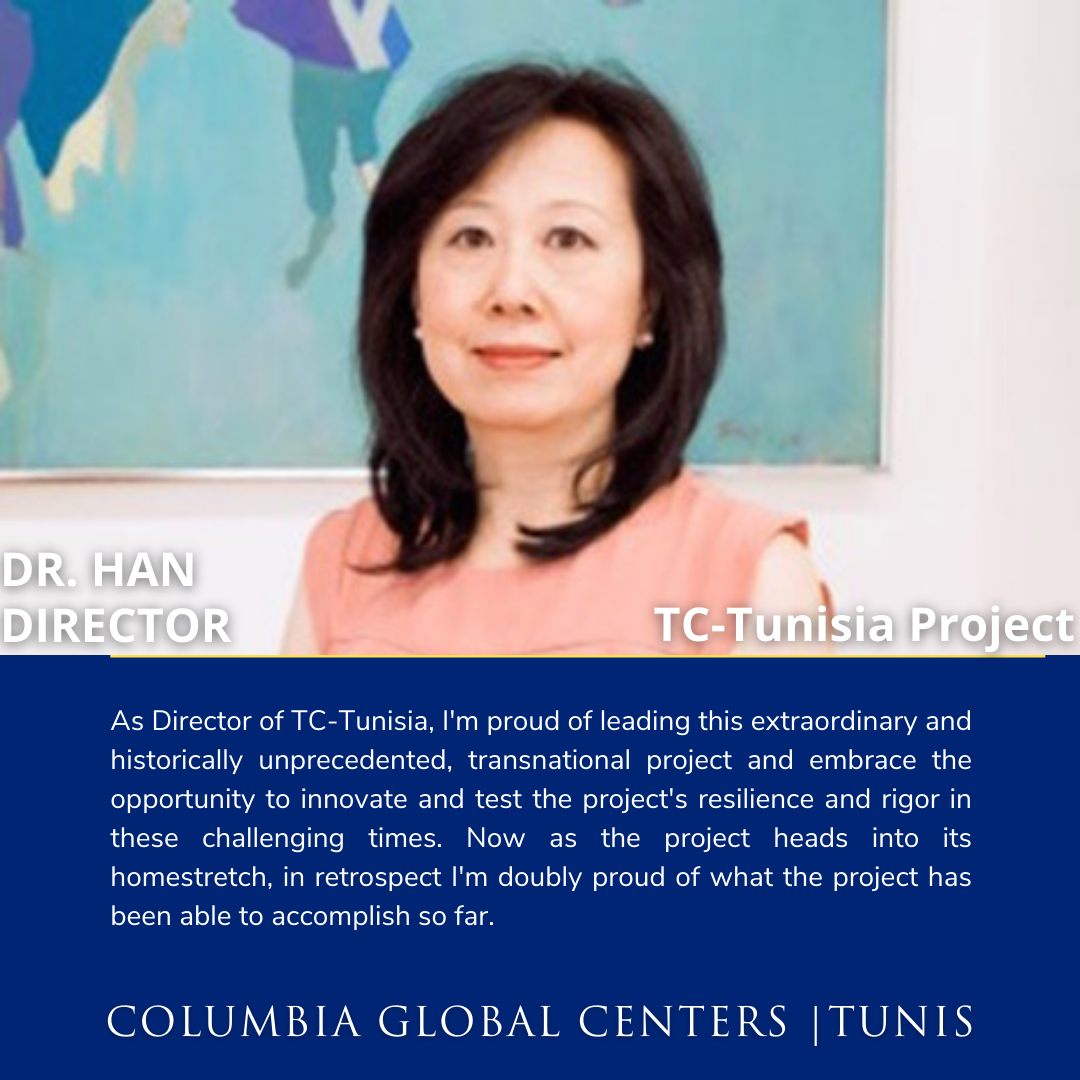For this Eighth issue, We had the chance to interview Dr. Han about her experience as Director of the TC-Project Tunisia.
Tell us more about the TC-Project?
TC-Tunisia, a project co-sponsored by the United States Embassy in Tunis, the Tunisia Ministry of Scientific Research and Higher Education, the Columbia University Global Center in Tunis, and Columbia University's Teachers College, provides professional development in teaching English to young learners in Tunisia. The project kicked off in early 2021, amid a confluence of local and global socio-political, economic, and health crises. The first cohort of participants were 30 frontline instructors of English selected from ten higher education institutions across nine provinces in Tunisia.
The first edition of the TC project is nearing completion, how was your experience as a director?
As Director of TC-Tunisia, I'm proud of leading this extraordinary and historically unprecedented, transnational project and embrace the opportunity to innovate and test the project's resilience and rigor in these challenging times. Now as the project heads into its home stretch, in retrospect I'm doubly proud of what the project has been able to accomplish so far: Not only has the curriculum been implemented without any compromise but also the amount and quality of learning that comes out of the first cohort of participants have been nothing short of remarkable - solid and penetrating. More profoundly, the experience - inspirational and motivational - of working closely with project participants is opening up further avenues of collaboration, breeding new initiatives for advancing and substantiating the work started and its scope of impact. I'm thankful to our co-sponsors for their stalwart support and to our project participants for their dedication, passion, and hard work. Tunisia should be eternally hopeful because of them.
More about this Project in this Newsletter.
